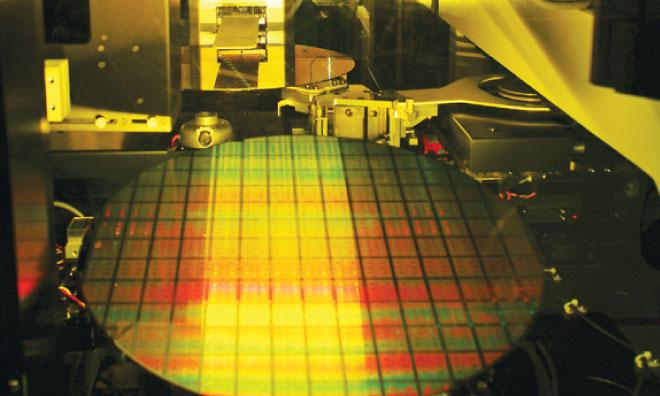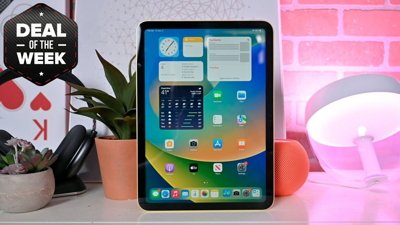Following years of rumors, chipmaker Taiwan Semiconductor Manufacturing Co. has begun production of Apple's A-series processors and the chips are now making their way to assembly plants, according to a Thursday morning report from Hong Kong.
TSMC's 12-inch wafer fab
TSMC started production on its 20-nanometer fabrication lines in the first quarter of 2014, with shipments commencing in the second quarter, the Wall Street Journal said. Samsung will reportedly remain one of Apple's top suppliers for now, but will split orders with TSMC for the near future.
"Apple's order is a big deal to the company. TSMC has assigned a large team to support Apple as you know this client is very picky," a person familiar with the Apple deal told the publication.
Whispers that TSMC had begun manufacturing so-called "A8" chips for Apple's next-generation iPhones and iPads surfaced in March. Those processors are though to be quad-core models, doubling the dual-core setup of the current-generation A7.
TSMC has been linked to the manufacturing of Apple's A-series chips numerous times over the years, but the company has not yet seen its silicon sit at the heart of iOS devices. The company does manufacture other custom chips for Apple, however, including the Touch ID sensors introduced with the iPhone 5s.
In addition to the 20-nanometer production, Apple and TSMC are believed to have agreed on a research and development collaboration that will see Apple move to 16-nanometer production next year. It is unclear what the process shrink means for the long-term future of Apple's partnership with Samsung, on whom the iPhone maker has reduced reliance as the companies battle it out on retail shelves and in courtrooms around the world.
 Sam Oliver
Sam Oliver








 William Gallagher
William Gallagher

 Christine McKee
Christine McKee
 AppleInsider Staff
AppleInsider Staff
 Chip Loder
Chip Loder

 Malcolm Owen
Malcolm Owen








55 Comments
It's my understanding intel is already making chips in the 14 nanometer range. These TSMC chips are 20 nanometer?
It was expected, not only samsung isn't a nice company but their process had fallen behind the shelude as we got 28 nm in 2012 from TSMC and in 2013 from samsung (exynos 5octa). Even when Apple was forced to go with samsung at 28 nm their process is somewhat less matured and more power hungry than TSMC's. Apple's push for 20 nm was obvious, it delivers at least 30% lower power consumption 2x higher transistor density, things that are needed for unified chips like A7, which are great for both iPhone and iPad because they combine low power consumption (like Apple A6) with no compromise performance (like Apple A6X) There has been so many shortages for 20nm ( from the beginning of 2014) that AMD,Nvidia and all ARM manufactures are angry... Possibly because Apple is sucking out entire 20nm manufacturing capability as their are planing to churn out 68 millions six's before end of the year. 20nm is a huge win... Considering intels delay of 14nm to 2015, it will be the smallest node for some time... Like smaller node than in all computers ! At 20nm you can implement quand core, far beefier GPU have drastically lover idle AND busy power compustion and produce less heat (wasted power). Basically speaking A7 was so impressive from performance standpoint that traditional 2x performance gain is basically impossible without going to 20nm. And ultra bassically speaking, game over, time to upgrade, even from my 5S.
It's my understanding intel is already making chips in the 14 nanometer range. These TSMC chips are 20 nanometer?
Intel's current Haswell processors use a 22 nm process, whereas the forthcoming Broadwell is 14 nm. However Intel has been experiencing product yield problems with their 14 nm process, resulting in Broadwell's delay from mid-2014 to an estimated 4Q-2014.
Which is more important, bragging rights to the smallest process size, or having a product to ship?
Looking forward to seeing how big of an impact this will have on real day to day battery life. Can't wait!
It's my understanding intel is already making chips in the 14 nanometer range. These TSMC chips are 20 nanometer?
Intel might be starting to make them, but mass production is now expected in 2H 2015.
In addition, one company's node size is not trivially comparable to another's...